A Small Part Of My Story
In an interview with filmmaker Werner Herzog on the Portal Podcast in 2019, Eric Weinstein asks the veteran auteur to offer some advice to young folks. His answer can be paraphrased like so:
“Read thousands of books and travel by foot.”
Initially my intention was to write a book on Self-Mastery, Skills & Knowledge Acquisition, “Lazy Entrepreneurialism,” Independent Scholarship, Financial Independence and Nutrition & Fitness. I was planning to write the ultimate guidebook to independently pursuing (and crushing) excellence and badass-ery.
I was intending only to write a small section on wokeism, cancel culture and group identity politics for the purpose of illustrating that self-mastery is a better life choice than any the current brands of radical activism offer. My larger point being that self-directed pursuits of personal development and self-mastery are in themselves a sort of positive counter-woke political statement. Efforts to improve one's community and/or country can be viewed much the same way; counter-woke and positive in the sense of building things up through improvement, instead of tearing things down through revolution.
Admittedly, my thoughts were somewhat a rough collection of even rougher ideas, but I was sure that somewhere in the tangle was a book. If I could convince people that instead of assuming Western societies are oppressive regimes (as the woke tend to do) - rendering pointless acts of self-enrichment (because who is “working on themselves” in a dystopia? Even in an imagined one?) - and that the mere act of engaging in self-improvement is a rejection of Wokeism, then maybe I could offer not just a book, but a possible way out of the madness.
In reflecting on my earliest accounts of the constraints of group identity, I remembered noticing as a kid, a strange binary present throughout the general culture of the schools I attended. Driven entirely by us kids regardless of how hard our teachers may have tried to guide us to better ends. On one side there were cool kids. They were often stylish or athletic and up on the fads of popular culture. On the other side the geeks and nerds. They were smart, not cool. They read books, got good grades and knew about things.
I think this has changed for the better, but when I was a kid, it wasn’t cool to be smart. In fact, members of the in-crowd would often act dumber than they were, signalling for group acceptance. It was cool, funny even, to be clueless.
I remember hiding my comic books before my friends, whom I played sports with, came over to my house. I couldn’t let my “cool” athletic friends know that I read things by choice. Or that I had any kind of imagination. Later in high-school I identified as a musician, and formed a rock band with other musician friends. During those years the same type of athletic kids who I had so wanted to accept me, were no longer cool. They were jocks and I was with the creative types. We were sworn enemies. There could be no overlap. For years I foolishly turned away from athletics feeling they would somehow diminish my identity as a creative artist and musician.
Thankfully I always had at least a few friends whom I was comfortable to fully be myself, but I do remember adolescence being a minefield of tribal rules and allegiances, the dynamics of which I would notice much later in the group identity politics of today.
My first foray into entrepreneurialism was in the music business. Myself and some partners started a boutique audio electronics research and development lab, designing hand-built high-end recording studio audio electronics. Our philosophy was that Integrated Circuits had prematurely obsolesced vacuum tube electronics, before classic analog circuitry had a chance to fully reach its potential. At least in the field of pro audio (meaning specific to recording studios). A little idealistic to say the least, a trend that would follow most of my endeavors even to this day.

Later, continuing with an artistically motivated idealistic crusade to “honor my sacred art form” (music production), I built a multi-suite commercial recording studio outfitted almost exclusively with the high-end and highly esoteric recording devices my partners and I had developed. Everything was independently funded and developed with a DIY ethos. The completion of the audio devices and the recording studio took longer and cost more than planned, but the sense of accomplishment on day one of opening a professional commercial recording studio that I had built, fully equipped with recording equipment (developed and hand-made by my partners and I), was infinitely worth it. The years spent as the in-house sound engineer, producer and studio musician were a blast I will never forget.
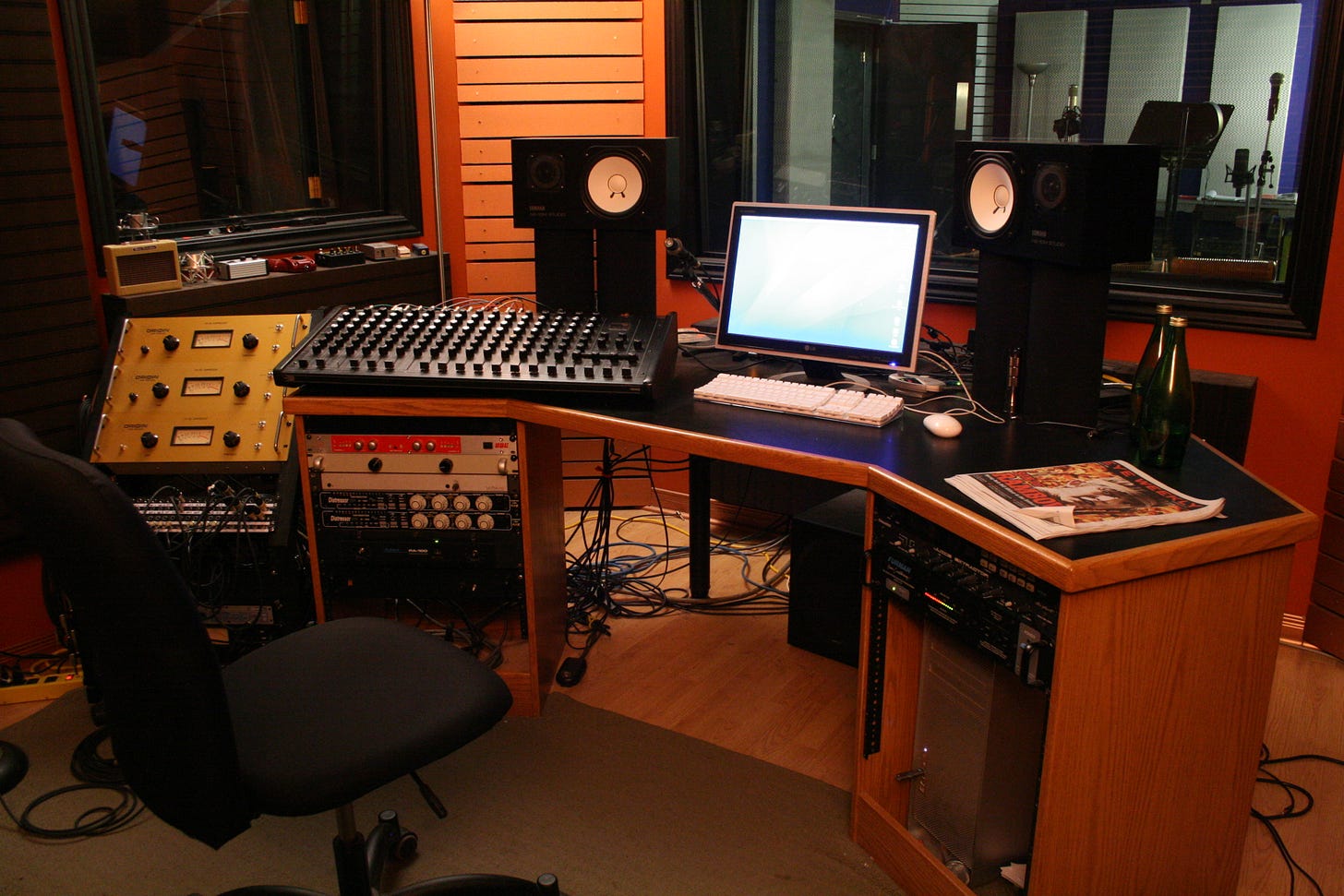
The two years I spent constructing the studio were exciting but extremely grueling. I was still putting in time at the “electronic’s lab” - Actually just my friends shop. The highly respected Canadian luthier, Freddy Gabrsek, who was the leading electronics tech genius behind our audio adventures. And I was also working a full-time job in construction, coming home after full days of brutal physically exhausting work, to put in 3 or 4 additional hours at my studio job site.
I still have nightmares about this time. I had grossly underestimated what it was going to take to fully complete the studio and the audio electronics that would be the heart of its “sound.”

For two years I slugged it out. There were extended miserable periods where I did nothing but construction work all day and night long. All I wanted to do was produce music, with that elusive carrot perpetually out of reach. It was a truly stressful time, made worse by my lack of ability to accurately predict when the work would be completed. I’ve always had an aptitude for building things, but a recording studio presented technical challenges that required time spent on researching the physics of acoustics (and learning the math in order to properly design and build acoustic treatments), as well as building concepts (for sound isolation) that you don’t usually encounter in regular residential or commercial construction.
It seemed that no one (with the exception of a small handful of friends who assisted me with some of the heavier construction work), had any words of encouragement. The only thing my family had to say was “Is the studio open yet?” No...the studio was not open yet, but I knew that when it did have its inevitable grand unveiling, it would be amazing! This is when you would expect a word or two of encouragement - but I mostly got blank stares which say so much more than words ever do.
Everything finally got done, with little compromise I’m proud to say. My vision had come to life. However, the thing I didn’t understand at the time was that due to the Herculean effort, pain and sacrifice required to execute on this idealistically driven music production dream, I would re-attach (in a near permanent way) and strongly re-assert my identity as one inexorably linked to a recording studio and a music producer persona. Regrettably, (but not terribly so), this led me to stay a little too long. Not exactly the healthiest of things to do, but one entirely consistent with my slightly obsessive and stubbornly determined personality.
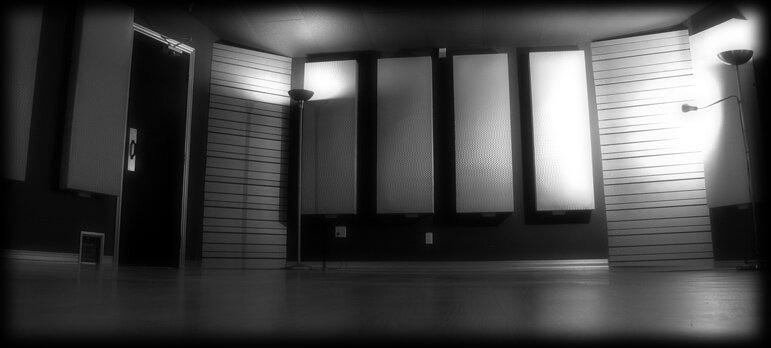
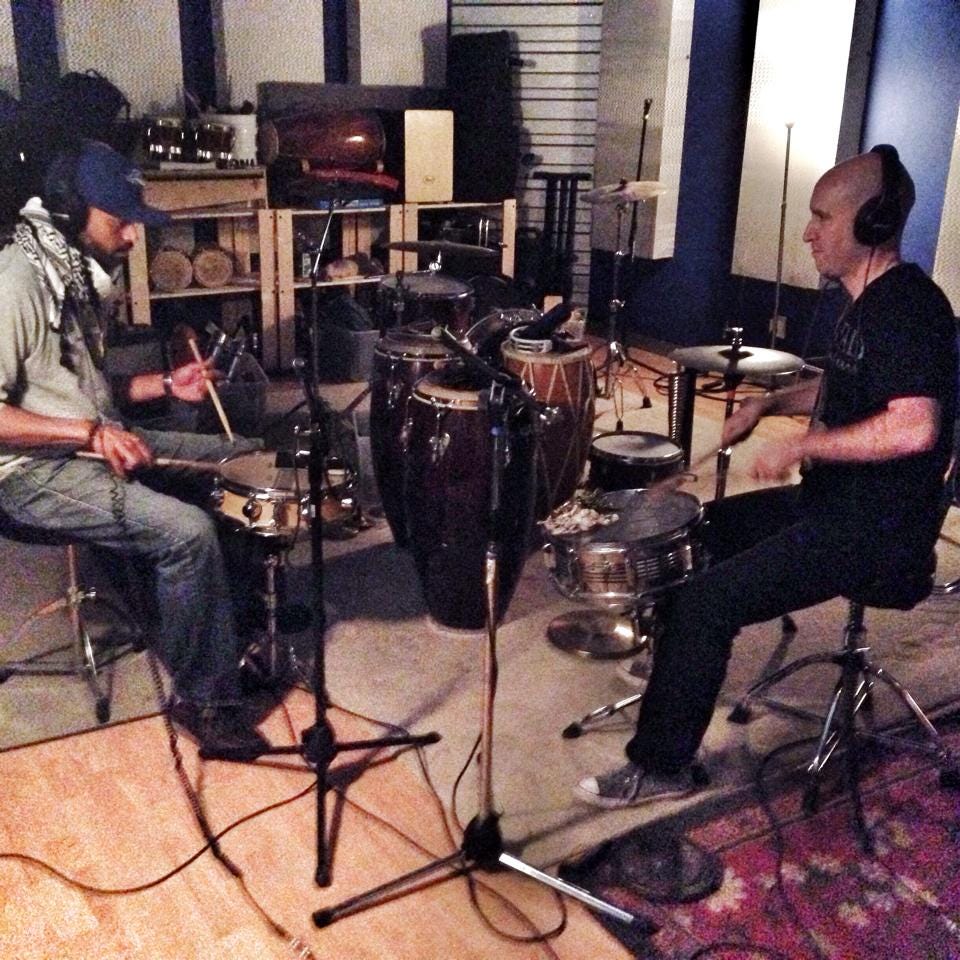
All of this made the choice to change things up and pursue other ambitions, an unnecessarily tortured one. Near the end, my life had taken on some of the characteristics of the John Cusack character in the film “High Fidelity.” In the film Cusack plays a used record store owner (and passionate music fan and collector of vinyl). He is depressed and detached. Bored with the monotony of his once dream business. The vision he made real, and the life it provided, had reached its expiry date. He became rudderless and despondent.
My case was a little different in that my studio was always full of people and activity - and it was usually energizing and inspiring to be there. However, it was more work than any one person should have to do and over time that starts to eat away at your spirits.
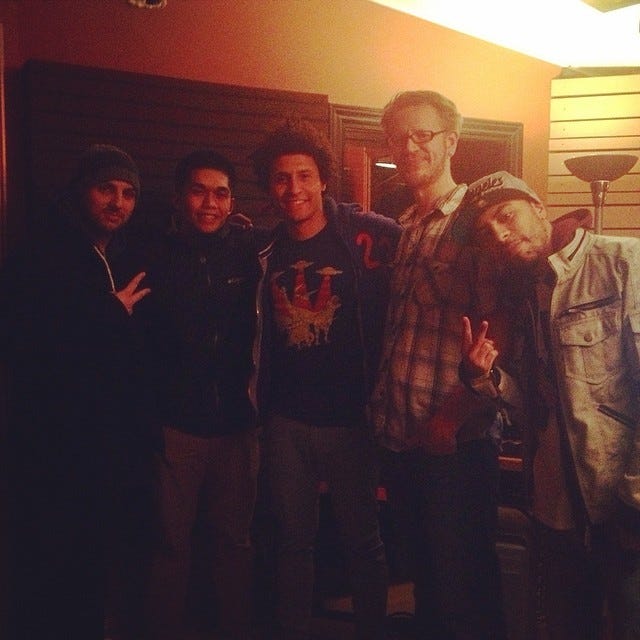
I needed more time for my family and to pursue interests outside of recording studio life. Writing helped me realize my need to stretch out for more enriching things; reading and writing, practicing musical instruments (piano & guitar), studying culture issues and music theory, writing my own music, or book and trying my hand at other entrepreneurial projects (especially this thing called “lazy entrepreneurialism” I discovered in Richard Koch’s book “80/20 Your Life”), and of course, travelling…preferably by foot.
Operating for 15 years, the studio, and myself, logged tens of thousands of hours of session time. I worked with many virtuoso musicians, critically acclaimed indie artists, talented producers and Grammy and Juno award winners. I had a few unusual encounters such as helping Canadian federal politician Michael Ignatief produce audio clips for radio during a federal election. Though the vast majority of the session hours logged were music production related, one other notable non-music example was an interview I recorded of broadcaster Maie Pauts speaking with world renowned Israeli-Canadian Cellist Ofra Harnoy.
People like Ofra are very rare and special in a way I won’t attempt to do justice with words. But spending an afternoon with her and her husband, even if I was just the audio engineer and studio host, had a lasting effect. There is a long list of musical adventures involving many profiled musicians who frequented my studio - I won’t bore you with that now, perhaps in another book.
The need to write was with me all through my career in music production. I published content voraciously on my blog, “Studio Manifesto.” It was sometimes DIY style advice for indie artists, other times scathing indictments of things I perceived to be grave injustices or outright assaults on my “sacred art form.” Namely things like “the loudness wars” (the practice of audio engineers artificially embedding “loudness” into audio recordings through a process that reduces dynamic range), copyright restrictions, entertainment culture commentary, and sometimes even outright Guerilla DIY manifesto stuff.

I had a community of readers, many of them artists I worked with, others part of the community of musicians throughout the Greater Toronto Area. They liked it. I took them to unexpected places but always kept the material relevant to the life of a musician. They humored me, even after I went deep down a Marshall McLuhan rabbit hole and began a year of writing obsessively about the legendary Canadian media theorists ideas, and how they were essential understanding for the modern DIY indie artist. I’m not sure if I convinced anyone, but it did inspire a ton of really fun and interesting conversations about Marshall McLuhan with talented people I admired who also had weird ideas about the world.
Through these efforts I ended up publishing music industry thought pieces in a few other online publications. The hilariously wise but potty-mouthed musician/writer Martin Atkins (author of the famous how-to book for musicians, Tour Smart), included two of my short blog pieces in his follow-up book Band Smart.
But for the most part I wrote (and continue to write) because I have things to say and I want more for those things than the fleeting representation found in conversation. While it's true that many of the things I write are inspired from conversations with cool people, it is the writing down of (recording of) them that gives them a life beyond the limitations of deep talks with friends. For some reason that is important to me.
Studio life was nothing short of wonderful, even if just for a time. So many beautiful memories of working with top-tier musicians - many I became great friends with - like Iconic Canadian jazz trumpet virtuoso Browman Ali and master percussionist (of the revered Canadian percussion quartet Torq), Adam Campbell.
It was never about any particular end, but always about the “thrill of the chase,” the beautiful process of making music. Now that the days of immersion into that process are past, I have no regrets or feelings of things left undone. I do however take a lot of pleasure in hearing on the radio, the music I helped make. Especially on Jazz FM 91.1 - a dearly loved Canadian institution that has been teaching me about my great love, Jazz, for decades!
During these years (over 20 of them) I self-identified as a Music Producer, Sound Engineer, Musician and Recording Studio Owner. I also identified as left-of-centre on the political spectrum. Although I didn’t realize at the time, boredom and stagnation after so many years in the Canadian independent music scene, had a lot to do with the fact that 99.5% of everyone around me; recording artists, musicians, sound engineers, music journalists, rappers, singers, beat makers, etc. - also identified left-of-center politically. Too much sameness. It’s not the reason I chose to move on to other entrepreneurial pursuits, but thinking back now, it definitely had something to do with it.
Artists and creative types may demonstrate diversity through their virtuosity and unique or novel modes of expressions, resulting in enormous varieties of sounds, colors, and textures. But one overarching characteristic that is antithetical to diversity is that the majority of artists and creative types are ideologically predisposed to leftist politics. Why is that?

Artistic, creative and entertainment spaces/products of society, while in some ways remain vibrant, have become, if they haven’t always been, narrow in ideological scope. Wokeism exacerbates this tendency.
One of the most powerful things I’ve employed for personal growth and self-actualization has been to break the chains of group identity that prevented me from fully experiencing ideas and living life. My allegiance is to other humans, not to a recording studio, political party or activist organization. My identity is not built on an oppositional configuration to others, because how can I or anyone else understand anything when we are captured by an ideology that invents and rationalizes our opposition.
You may vote liberal, but that doesn’t mean you are liberal. Vote whichever way you feel at election time, but the rest of the year why not listen broadly to viewpoints of commentators and critics - even when they talk in ways your team doesn’t like? Or, just avoid the whole problem...Don’t have a team, read and listen broadly.
Left/right who needs it? It’s a false dichotomy supported by binary thinking. When you automatically dismiss ideas because they come from the opposing tribe, you do yourself and everyone else a disservice. It’s a mistake to let any aspect of organizations or activist movements become an immutable characteristic of your identity. Think for yourself, but don’t automatically assume you have. As Canadian environmental lawyer, Bruce Pardy, has pointed out, many people seem to inhabit the ideas of wokesim, without themselves ever having given “consent” by way of consciously accepting the terms of the ideology.
At the moment I “broke the chains” of identity, I had “permission” to check out thinkers and ideas that were previously “off limits.” As a typical left-leaning artist it was fine if I read Noam Chomsky, Gore Vidal or Howard Zinn. But other thinkers (sometimes associated with conservative or libertarian thought), like Thomas Sowell, Barbara Kay and Charles Murray are considered beyond the pale for many left leaning types.
In this book I have aimed for a political diversity of sorts. I’ve included a broad variety of ideas and sound reasoning from a truly diverse pool of exceptional thinkers; former socialists, classical liberals, social democrats, conservatives, libertarians, and even proponents of the Austrian School of Economics. I’ve attempted to utilize what Marshall McLuhan called “Field Approach” (loosely meaning everything in human culture is available to consider and analyze, and use as evidentiary fragments toward illumination of larger mosaic patterns), this and the recent emancipation from the chains of identity, has for me become, the intellectually liberating “stuff that dreams are made of.”
It was not a linear path to identity liberation. The different phases of my identity - from childhood to now - seem at best superficial. Always bogged down with internal conflict leading to self-censorship and a type of shallow personality curation designed to signal desire for acceptance by others. Always feeling my athletic friends wouldn’t accept my intellectual interests, or my music friends wouldn’t accept my athletic interests, or my artistic liberal friends wouldn’t accept my interest in conservative economic thought, or my socially conscientious friends wouldn’t accept my criticism of Critical Social Justice - eventually, there came a time when an assertion of autonomy over my thinking and identity became essential if any modicum of authenticity were to remain preserved.
So in short, Wokesim (which was slated to be a small section, maybe a chapter, in a book otherwise focused on self-improvement), has instead become the heart of the matter. So-to-speak.
Thanks for Reading, next up is Free Speech According To The Woke: Woke Authoritarianism, Free Speech and Cancel Culture.
This is the second installment of “The Woke West: The Identity Politics, Cancel Culture, Radical Activism And Forbidden Knowledge Dividing The West...And What You Can Do About It!” - A book by James Pew, published serially to The Turn Substack.
PS. To anyone interested - I’ve embedded a few examples of music I produced during the years described above. This is an eclectic little collection of some of the unique and talented Canadian indie artists I met at my old recording studio, Euphonic Sound, in the High Park area of Toronto, Canada.



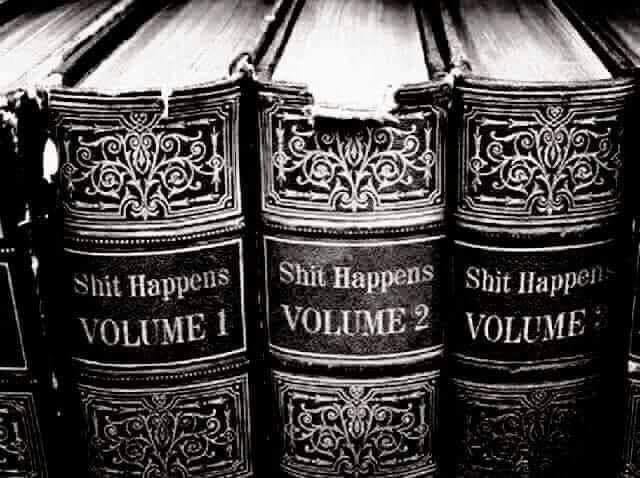
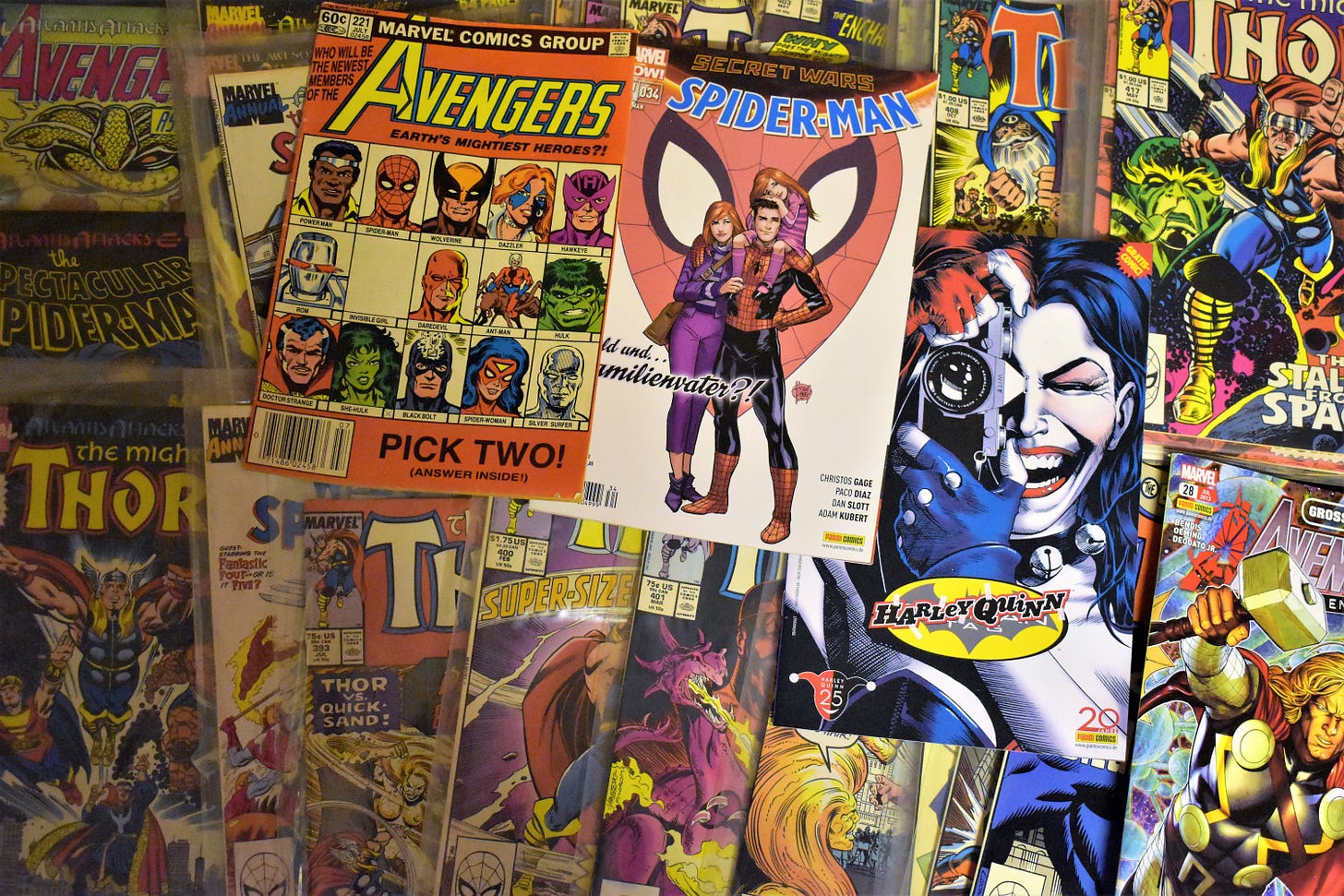

‘ Artists and creative types may demonstrate diversity through their virtuosity and unique or novel modes of expressions, resulting in enormous varieties of sounds, colors, and textures. But one overarching characteristic that is antithetical to diversity is that the majority of artists and creative types are ideologically predisposed to leftist politics. Why is that? ’
Totally empathize.